Step 1: Complete the American Heart Association online course.
Step 2: Perform skills testing in Oakland or another location.
Step 3: Receive the American Heart Association card same day.
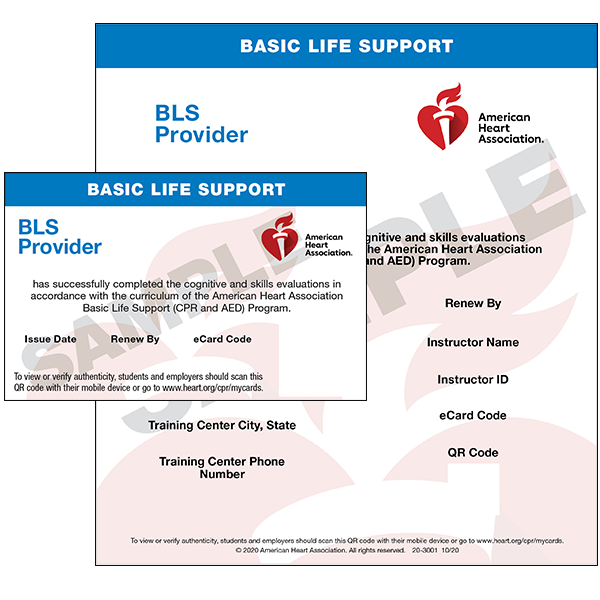
Basic Life Support
Online Course: 1-2 hours
Skills Testing: 30 minutes
100% Pass Rate Guaranteed
Lowest Price In Oakland
Receive Card On Class Day
Thousands of 5 Star Reviews
CE Credits to CA Dentists
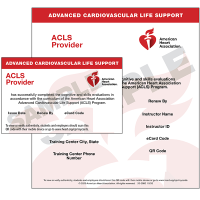
Advanced Cardiac Life Support
Online Course: 2-3 hours
Skills Testing: 30 minutes
100% Pass Rate Guaranteed
Lowest Price In Oakland
Receive Card On Class Day
Thousands of 5 Star Reviews
Some Professions: 2-3 CEU
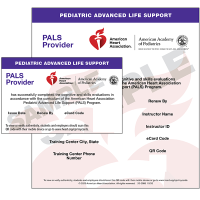
Pediatric Advanced Life Support
Online Course: 2-3 hours
Skills Testing: 30 minutes
100% Pass Rate Guaranteed
Lowest Price In Oakland
Receive Card On Class Day
Thousands of 5 Star Reviews
Some Professions: 3.75-5 CEU
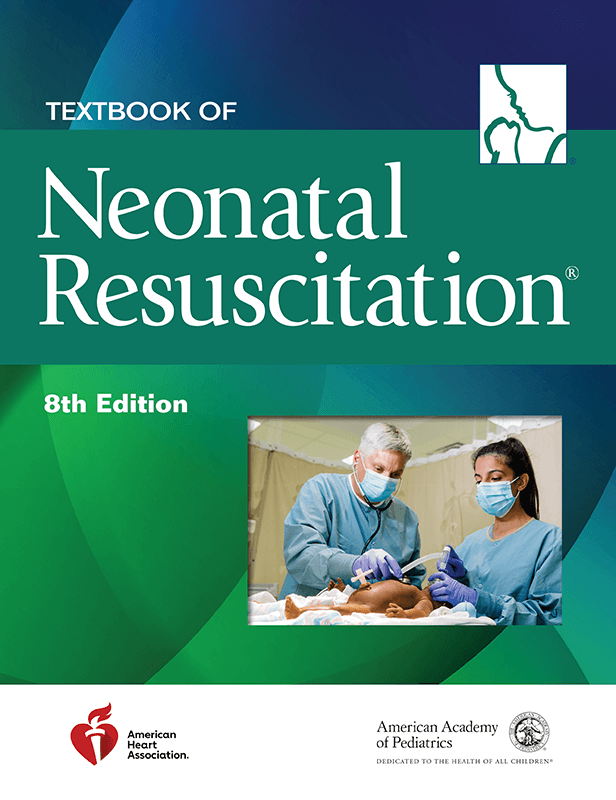
Neonatal Resuscitation Program
Online Course: 2-3 hours
Skills Testing: 3 hours
100% Pass Rate Guaranteed
Lowest Price In Oakland
Receive Card On Class Day
Thousands of 5 Star Reviews
Some Professions: 4 CEU
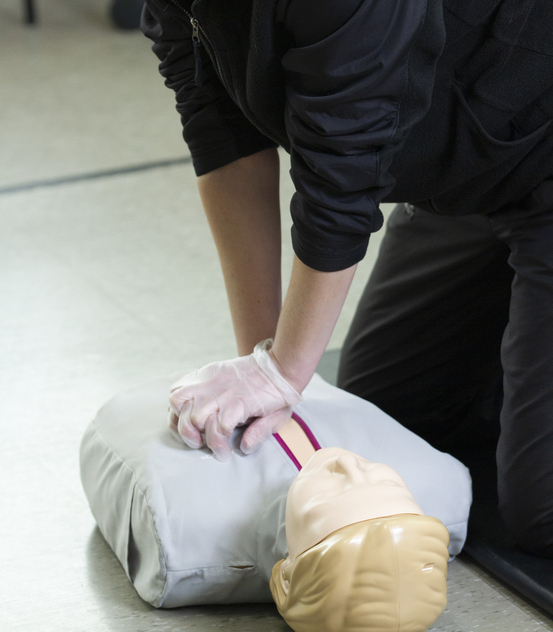
Audience: General public
Topics: CPR for all age groups, AED use, bleeding, epi-pen, etc
Online Session: 1 Hour
Skills Testing: 30 minutes
Card: Safety Training Seminars
Certification: Valid 2 years
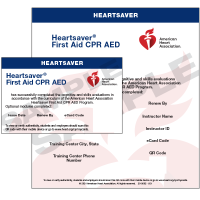
Audience: General public
Topics: CPR for all age groups, AED use, bleeding, epi-pen, etc
AHA Online Course: 1-2 Hours
Skills Testing: 30-45 minutes
Card: American Heart Association
Certification: Valid 2 years
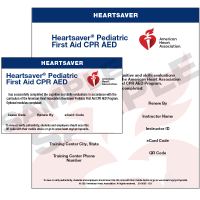
Audience: Childcare providers
Topics: CPR for all age groups, AED use, bleeding, epi-pen, etc
AHA Online Course: 1-2 Hours
Skills Testing: 30-45 minutes
Card: American Heart Association
Certification: Valid 2 years

Audience: Childcare providers
Topics: Lead poisoning, nutrition, infectious disease,etc
Zoom Course: 8 Hrs (state law)
Skills Testing: 30-45 minutes
Card: EMSA Health & Safety
Certification: No expiration
EXCELLENTTrustindex verifies that the original source of the review is Google. The CPR class and First-aid class at Safety Training Seminars was informative and engaging, with experienced instructors who provided valuable guidance on how to respond to medical emergencies. Additionally, the american Heart Association accreditation guarantees that my CPR certification and certification elsewhere will indeed satisfy varying institution requirements.Trustindex verifies that the original source of the review is Google. the demonstration was very quick and easy! the instructions made it easy to understand to complete. i’ll definitely go here again!Trustindex verifies that the original source of the review is Google. I ENJOYED THE TRAINING WITH CONFIDENCE THAT I CAN SAVE SOMEONE'S LIFETrustindex verifies that the original source of the review is Google. The in person hands on skills is always quick and efficient. I always leave surprised as too how quickly I complete it. Thinks works well for medical professionals with busy schedules. The online portion you can complete in the comfort of your own home and the skills is a quick drive from my house! Done!Trustindex verifies that the original source of the review is Google. It’s was a great experience where you will be allowed to do the real CPR the right and comprehensive way.The Instructor was amazing,Am so glad I took the class.Also the prompt reply to your calls and email is a great pass .Thank you guys .Trustindex verifies that the original source of the review is Google. I enjoyed the BLS skills check class at Safety Training Seminars which provided made me feel confident in my ability to respond in emergency situations. The site and mannequins were clean. The CPR scenarios were very realistic. I gave 4 stars due to a poor WiFi connection.Trustindex verifies that the original source of the review is Google. I liked the format without the instructor, the computerized model was actually easy to follow once you practiced on the mannequins.Trustindex verifies that the original source of the review is Google. Quick and easy! Recommend if you need ACLS certification by AHA. Finished the online portion within 3 hours in the morning and went into the skills test that afternoon. The skills test took less than 10 minutes to complete and before I could walk out the building, my card was already in my inbox! So happy I chose this company for my training.
Fruitvale: 2648 International Blvd, Suite 59B, Oakland, CA 94601
View CPR, BLS, ACLS, PALS & First-aid Classes in Oakland (Fruitvale)
Piedmont: 154 Santa Clara Ave, Suite 6, Oakland, CA 94610
View CPR, BLS, ACLS, PALS & First-aid Classes in Oakland (Piedmont)
The RQI (Resuscitation Quality Improvement) program by the American Heart Association is the leading, and efficient method for Oakland’s medical & healthcare professionals to acquire their official BLS, ACLS, and PALS certification cards from the American Heart Association.
Achieving Certification in Three Simple Steps
Safety Training Seminars CPR (Established in 1989)
Safety Training Seminars CPR is a woman-owned American Heart Association (AHA) Training Center based in Oakland, CA. We specialize in delivering courses like BLS (Basic Life Support), ACLS (Advanced Cardiovascular Life Support), PALS (Pediatric Advanced Life Support), CPR, and First Aid.
Exceptional Customer Support
Our highly trained customer service team is available daily—even weekends—from 8 AM to 10 PM, ready to assist with your questions or bookings.
Courses Offered Daily We run AHA-certified BLS, ACLS, PALS, CPR, and First Aid classes every day in Oakland and 60+ nearby cities, ensuring convenience for all participants.
Official Certification in No Time
Finish the course and walk away with your official American Heart Association certification card, valid for two years.
Competitive Pricing Guaranteed
We provide the lowest course prices in Alameda, backed by our Low Price Guarantee, ensuring affordability without sacrificing quality.
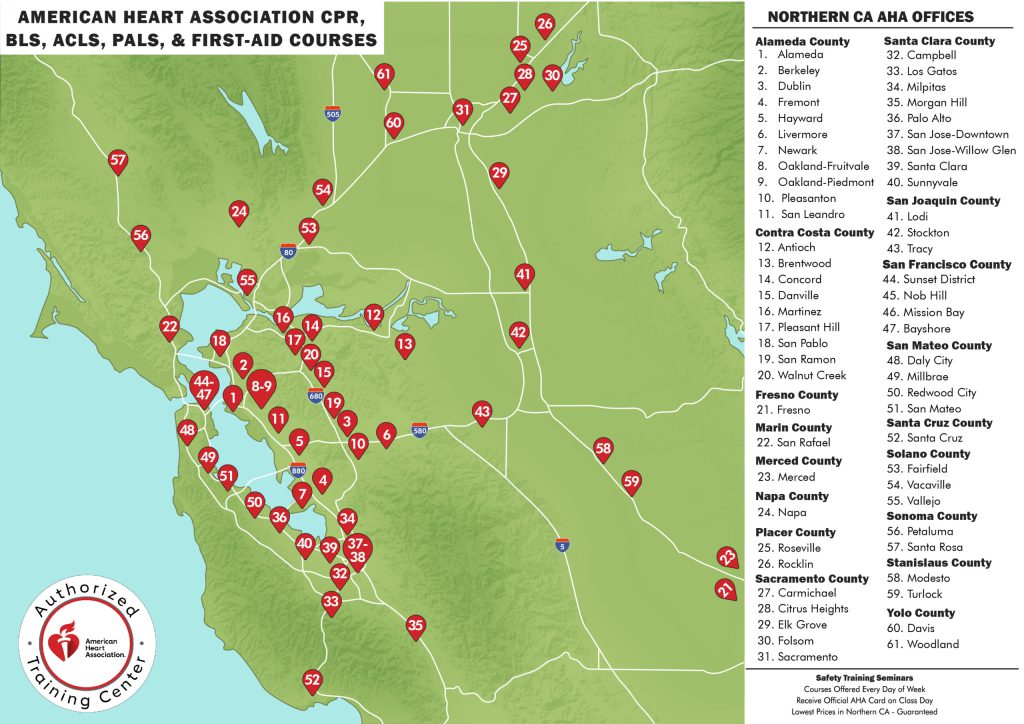
Imagine being the difference between life and death in an emergency. A few minutes, the right actions, and the right skills can save a life. This is why CPR, First Aid, and life support training are not just beneficial—they’re essential. Whether you’re a healthcare professional or simply someone who wants to be prepared, learning these skills empowers you to act with confidence during critical moments.
When it comes to CPR and life support certifications, the American Heart Association (AHA) stands as a global authority in training. With courses built on evidence-based practices and designed to prepare individuals for real-life scenarios, the American Heart Association equips participants with invaluable skills that save lives. If you’re in Oakland, CA, and considering certification, here’s everything you need to know about the courses offered and how they can make a difference.
The American Heart Association has long been a trusted name in healthcare education. Backed by decades of research, the AHA’s curriculum is evidence-based, ensuring you’re learning the most up-to-date practices for lifesaving care. Their certifications are recognized worldwide for their rigorous standards, making them a top choice for professionals and laypersons alike.
Whether you’re a nurse applying for a job in a hospital, a teacher needing CPR certification, or an emergency responder fulfilling job requirements, an American Heart Association certification is universally acknowledged. Employers across industries trust AHA credentials, knowing they meet the highest standards.
These courses equip you with more than just knowledge. They provide the hands-on training you need to respond confidently and efficiently in emergencies. You’ll learn how to perform CPR, use an AED, manage airways, and handle cardiac emergencies. By the end of your training, you’ll be ready to act when lives are on the line.
The American Heart Association offers a range of courses tailored to different participants—from first-time learners to advanced medical professionals. Here’s a breakdown of the main certification options:
Ideal for laypersons and professionals, the CPR and First Aid course covers basic lifesaving techniques. Whether you’re a parent, teacher, or someone looking to gain emergency skills, this class is a great starting point.
Topics Covered:
With a focus on real-world emergency scenarios, you’ll leave the training equipped to handle everyday crises with calm and confidence.
Perfect for healthcare providers and first responders, this course prepares you to manage emergencies in clinical or field settings. From administering CPR in two-person teams to using advanced techniques for airway management, BLS training is comprehensive and practical.
Topics Covered:
Whether you’re a nurse, EMT, or physician, Basic Life Support training ensures you’re ready for high-pressure situations.
Designed for advanced medical professionals, ACLS takes lifesaving skills to the next level. Doctors, paramedics, and critical care nurses benefit from its in-depth focus on cardiovascular emergencies.
Topics Covered:
ACLS certification ensures participants are prepared to make fast, accurate decisions when every second counts.
This course is tailored for healthcare providers who treat critically ill infants and children, such as pediatricians or paramedics working in pediatric emergencies.
Topics Covered:
PALS ensures that professionals caring for children are ready to respond to the most challenging scenarios.
All courses include practical, hands-on practice using high-quality equipment like manikins, AED simulators, and emergency care tools. This allows participants to master critical skills in a supportive, interactive environment.
Having an American Heart Association certification on your resume sets you apart in competitive fields like healthcare, childcare, and education. Employers value confidence and competence in emergency response, and these certifications affirm both.
Life is busy, but that shouldn’t stop you from mastering lifesaving skills. With options like in-person training, online modules, or a blended learning approach combining both, you can choose the path that fits your schedule.
Stay prepared for an engaging learning experience. Here’s what you can expect:
American Heart Association classes cater to a wide range of participants:
If ensuring safety in emergencies is vital to your role—or your peace of mind—these courses are for you.
To find an authorized local training provider:
Equipping yourself with CPR, First Aid, or life support training doesn’t just prepare you—it protects those around you. The American Heart Association offers the gold standard in emergency preparedness, empowering you with skills that save lives and careers.
Whether you’re pursuing professional growth or aiming to keep loved ones safe, these courses provide invaluable training. Why wait? Take the first step in being ready for anything.
Start your lifesaving journey today. Enroll in an American Heart Association certification course in Oakland, CA, and gain the skills you need to make a difference.
Safety Training Seminars CPR
2648 International Blvd, Suite 59B, Oakland, CA 94601
(510) 340-4290